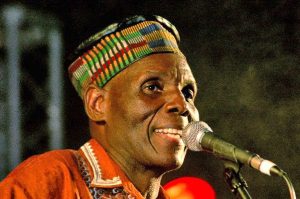By Tererai Karimakwenda
Public hearings to scrutinize applicants for the radio broadcast licenses on offer from the Broadcasting Authority of Zimbabwe (BAZ) started this week, and media groups and experts have already dismissed the process, saying it lacks transparency. Journalists were not even allowed to record the proceedings, which are supposed to be open to the public.

A total of 15 applications were received by BAZ, yet only four were shortlisted for the hearings, with BAZ offering no explanation as to why the other 11 have been excluded. Reportedly BAZ has not even informed them that they were not selected.
The first hearing focused on KISS FM, a Hot Media project. The directors include musician Oliver Mutukudzi, journalists Musi Khumalo and Tony Ndoro, public relations guru Sharon Mugabe and business chef Douglas Munatsi, who runs BancABC.
SW Radio Africa correspondent Simon Muchemwa, who was at the hearing in Harare, said many Zimbabweans will definitely be impressed by the people behind KISS FM, and may be blinded to the real issue of whether the station will truly be independent. He said there was much talk about Tuku teaming up with Khumalo, whose husband is a top military official, and Munatsi, whose bank is aligned with ZANU PF officials.
Muchemwa added that eyebrows were raised when KISS FM announced that their station would have an arrangement to broadcast news from the state run ZBC radio, until they have the resources to set up their own news team. He said the only explanation offered was that it was a temporary situation and KISS would not be influenced once they are fully operational.
The link to ZBC was strongly criticized by the Media Institute of Southern Africa (MISA), who said: “Such an arrangement will render KISS FM a relay station whose role is to amplify the very same propaganda that the new players should liberate Zimbabweans from.”
“It is very unfortunate because we have a serious problem with the bias and propaganda of ZBC news. We were hoping to get a variation of different voices from the new media players,” MISA programme officer, Koliwe Majama, told SW Radio Africa on Wednesday.
She added that MISA was concerned that ordinary Zimbabweans were not represented at the first hearing, because only a few “privileged” individuals knew about it. “Not enough time or effort was given to informing people exactly what was happening, when and where,” Majama explained.
MISA also continues to refer to unresolved issues regarding the legality of the BAZ board, which is supposed to have been reconstituted, as agreed to by the principles in the unity government earlier this year. “That board was illegally appointed by one political party but they continue to control broadcasting. Unfortunately the issue has been sidelined,” Majama said.
The remaining applicants for broadcast licenses who BAZ said will be reviewd at public hearings, are; Zimbabwe Newspapers Talk Radio, AB Communications and Radio VOP (Voice of the People).
Zimbabwe Newspapers are already known as publishers of the daily Herald newspaper and the weekly Sunday Mail, both clearly ZANU PF mouthpieces.
AB Communications is understood to be a project of former journalist and businessman Supa Mandiwanzira, who is also known to be a ZANU PF functionary and supporter of Upfumi Kuvadiki, ZANU PF’s so-called youth “empowerment” group. Their hearing is on October 25th.
Radio VOP currently broadcast programmes into Zimbabwe on the Radio Netherlands Worldwide network. Their hearing is scheduled for October 27th.
Independent radio is widely understood to be crucial if there is to be any hope of democracy and it’s particularly important as a means to spread credible and reliable information leading up to elections.
But there is clearly little urgency to license new broadcasters ahead of elections that are expected in the country in 2012. The Mugabe regime has resisted all meaningful changes to the electronic media environment and all media practitioners continue to be viewed as “enemies of the state” and are persecuted and harassed. SW Radio Africa





